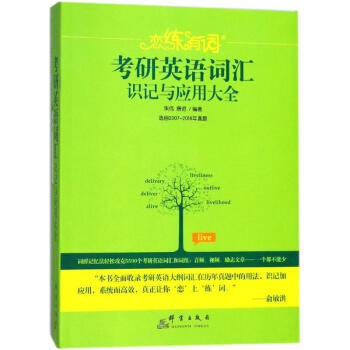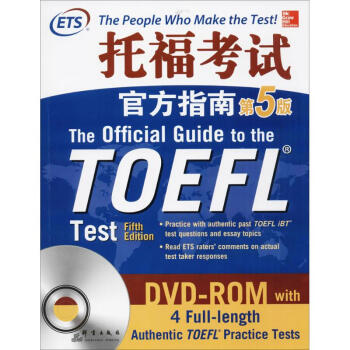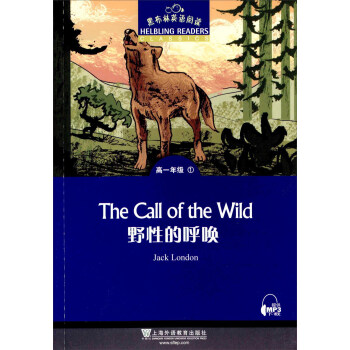![牛津英文经典:城堡(英文版) [The Castle]](https://pic.windowsfront.com/11886753/56dfebd0N84551674.jpg)

具体描述
编辑推荐
牛津大学出版百年旗舰产品,英文版本原汁原味呈现,资深编辑专为阅读进阶定制,文学评论名家妙趣横生解读。内容简介
一天夜里,主人公K踏雪来到城堡附近的村子里投宿,因无城堡统治者伯爵的居留许可证,没有人肯收留,几经周折,才允许暂住。他千方百计想进入城,或者希望得到村民的认同,在村里合法地安顿下来,但他到处碰壁,不为村民所接受,他面对的是一个极其荒诞的现实,他始终只是个“局外人”。到了第六天他还是没能进入城堡。《城堡》是卡夫卡的最后一部长篇小说,其“卡夫卡式”的抽象化描写达到了登峰造极的地步,是20世纪西方现代派文学中极为重要的作品。作者简介
弗朗茨·卡夫卡(1883—1924),奥地利伟大的作家之一,被认为是现代派文学的鼻祖,表现主义文学的先驱,其作品大都用变形荒诞的形象和象征的手法,表现被充满敌意的社会环境所包围的孤立、绝望的个人,成为席卷欧洲的“现代人的困惑”的集中体现,并在欧洲掀起了一阵又一阵的“卡夫卡热”。主要作品有《城堡》、《变形记》、《饥饿艺术家》、《审判》、《乡村医生》等。精彩书评
在15岁时读到卡夫卡的《城堡》时,便被文字中透露出的冷淡与荒唐所震撼,对于刚刚开始写作生涯的我来说,卡夫卡成为了某种象征,影响着我后来的写作风格。这种初识卡夫卡时带来的震撼至今仍未散去。——村上春树
目录
Biographical PrefaceIntroduction
Note on the Text
Note on the Translation
Select Bibliography
A Chronology of Franz Kafka
THE CASTLE
Explanatory Notes
精彩书摘
在15岁第一次读到卡夫卡的《城堡》时,便被文字中透露出的冷淡与荒唐所震撼,对于刚刚开始写作生涯的我来说,卡夫卡成为了某种象征,影响着我后来的写作风格。这种初识卡夫卡时带来的震撼至今仍未散去。——村上春树
前言/序言
KAFKA’s last novel centres on a simple and compelling cluster of images. A rural castle, the property of an absent nobleman, is run by an administrative staff who dominate the village beneath the castle. The protagonist, K., coming from outside and ignorant of the village and the castle, has painfully to learn their ways and to discover that, despite all his efforts, he cannot gain access to the castle. So far, this may seem to match the associations of gloom and oppression suggested by the term ‘Kafkaesque’. Kafka, however, has much more to offer than the ‘Kafkaesque’, and if one can put aside such presuppositions, The Castle provides many surprising discoveries.The reader of The Castle is likely already to know The Trial, and may think that Kafka has simply replaced one opaque, hierarchical authority, the court, with another, the castle. In their texture, however, the two novels differ considerably. In contrast to the anonymous city of The Trial, The Castle has a vividly presented material and social setting. We are in a remote village, in the depth of winter. The snowbound village is repeatedly evoked: ‘more and more little houses, their window-panes covered by frost-flowers’, ‘a narrow alley where the snow lay even deeper. Pulling his feet out of it as they kept sinking in again was hard work’ (p. 13). We feel how exhausting it is to have constantly to struggle through the deep snow. Moreover, the village is a community, with friendships and hatreds that go back through the generations. We learn about the village’s two inns, the humble Bridge Inn and the more pretentious Castle Inn, and about how the latter’s landlord and landlady acquired it; we meet the families of the tanner Lasemann and the cobbler Brunswick, and hear about their standing in the village; and we are told at great length about the family of Barnabas, the castle messenger, and how the family are in bad odour because of their refractory attitude towards the castle. And whenever a new figure is introduced, he or she is neatly characterized, so that even those who appear briefly — the carter Gerstacker, the village schoolmaster, the schoolmistress Gisa and her languishing suitor Schwarzer — are vivid presences.
This community is also the setting for a love story. Unlike the callous and self-centred protagonist of The Trial, the main character here is at least briefly capable of love, and the rapid development and decline of his love-affair with Frieda has moments of poignancy not
found earlier in Kafka’s work. These features offset the extensive conversations about the puzzling ways of the castle authorities, which correspond to Kafka’s profound concern with ambiguity, but which sometimes make one feel that the novel could have benefited from the work of an editor. Kafka did not complete the novel; like his others, The Trial and The Man Who Disappeared, it was published after his death by his friend Max Brod.
用户评价
这部作品的色调是如此的灰暗和沉重,以至于它像一块巨大的铅块压在胸口,却又带着一种奇特的吸引力,让人无法抗拒地想要去触摸和探究这片阴影的源头。它不是一本能让人放松身心、获取娱乐的小说,而更像是一剂必须服用的苦药,旨在揭示某种根深蒂固的社会病灶。作者笔下的世界,似乎连空气都凝固了,充满了被压抑的渴望和无法实现的抱负。这种压抑感是通过对重复、僵硬和毫无意义的重复行为的反复强调而达成的,它描绘了一种存在主义式的困境——个体在宏大结构面前的微不足道。尽管阅读体验是如此的艰涩和令人沮丧,但它提供了一种罕见的诚实,一种不加粉饰的对现代人精神困境的深刻剖析。这种诚实是珍贵的,它迫使我们正视那些我们更愿意逃避的、关于自由边界和个体抗争极限的沉重议题。
评分这部作品在构建场景方面展现出一种近乎病态的细致。你几乎可以闻到那些潮湿的石墙散发出的霉味,感受到那份永无止境的等待所带来的神经衰弱。环境与人物的内心状态是如此紧密地交织在一起,以至于你很难分辨出,究竟是环境塑造了人物的偏执,还是人物的感知扭曲了环境的真实面貌。那些冗长却又必要的交涉、那些看似漫无目的的穿梭于不同办公室之间的行走,都成了对主角内心焦虑的完美外化。这些细节的堆砌,非但没有使人感到拖沓,反而营造出一种令人信服的真实感——那种被琐碎的官僚流程所消磨殆尽的生命力,被刻画得入木三分。我欣赏这种不惜笔墨去描绘“过程”的勇气,因为它揭示了现代生活(或任何高度组织化生活)的本质:我们往往被困在永无休止的中间环节中,而真正的目的却始终遥不可及。这无疑是一次对耐心的终极考验,但这份耐心也因此获得了回报。
评分当我合上书卷时,脑海中留下的印象是关于那种令人窒息的、无处不在的体制压迫感。这不是那种直白地描绘暴政的场面,而是一种渗透到骨髓里的、微妙的权力运作方式。那种感觉就像你身处一个庞大而古老的机器内部,你看不清它的全貌,却能真切地感受到它沉重的齿轮在缓慢而坚定地碾过你的人生轨迹。叙事者的视角是如此的清醒又如此的无力,他似乎总是在努力接近一个核心,一个真相,但每当他以为触及时,那个核心又如同海市蜃楼般地后退了。这种永恒的“求而不得”构成了全书的基调,它让我开始反思我们自身所处的环境,那些看似合理的规则和流程,背后隐藏着怎样难以撼动的逻辑?作者高明之处在于,他没有给出一个明确的解决方案,也没有渲染廉价的革命激情,而是极其冷静地呈现了这种困境本身。这种冷静,反而比任何激烈的控诉都更具震撼力,因为它暗示了这种困境的普遍性和持久性,让人在阅读结束后,久久不能从那种被无形束缚的疲惫感中抽离出来。
评分这部作品的文字功底实在令人惊叹,那种对语言的驾驭能力,简直就像一位技艺精湛的雕塑家,将每一个词语都打磨得棱角分明,又恰到好处地融入整体的结构之中。阅读的过程中,我时常会停下来,反复咀嚼那些精妙的句式组合,它们并非单纯的叙事工具,更像是精心编排的音乐乐章,有着自己独特的韵律和节奏感。作者似乎对人性的复杂有着一种近乎残酷的洞察力,笔下的人物没有绝对的善恶之分,他们的一切行为都源于深埋于内心的某种难以言喻的驱动力。这种描绘手法,让整个故事笼罩在一层挥之不去的哲学迷雾之中,迫使读者不断地去探究“为什么”而不是仅仅满足于“发生了什么”。我尤其欣赏那种叙事上的疏离感,它没有急于将答案抛诸脑后,反而更像是在搭建一个巨大的、迷宫般的象征体系,每一个场景、每一次对话都可能隐藏着多重含义,这极大地丰富了文本的解读空间,也让重读成为一种必然的享受。每一次翻阅,都能从中挖掘出新的层次和理解,这才是真正伟大的文学作品所应具备的特质——它不仅讲述了一个故事,它更创造了一个可以供人长久栖居和探索的世界。
评分从文学史的角度来看,这部小说的叙事实验性是极其突出的。它挑战了传统小说的因果律和清晰的线性时间概念。读这本书,感觉就像在解读一个用密码写成的梦境日记,逻辑是存在的,但它遵循的不是我们日常生活的物理规则,而是潜意识的某种晦涩法则。人物的动机往往是含糊不清的,他们的目标也在不断地漂移,这使得读者必须主动参与到意义的建构过程中去。这种开放性是双刃剑,一方面,它要求读者付出极大的智力投入和专注力,初读时可能会感到挫败和迷失;但另一方面,一旦你适应了这种叙事节奏和迷离的逻辑,那种豁然开朗的智力上的满足感是其他作品难以比拟的。它不是在喂养你既成的观点,而是在激发你去发展自己的观察方法论,去质疑叙事者本身的可靠性,这种互动性让我感到自己像一个真正的参与者,而非一个被动的旁观者。
评分挺不错的,牛津出品有保证
评分棒棒棒棒棒棒棒棒棒棒棒棒棒
评分618搞活动就是便宜,性价比太高了!
评分好,,,,,,,,,,,,,,,,,,,,,,
评分很好
评分?好书分享图片
评分送货速度快
评分同事一直想要,买来做公司新年礼物
评分莎士比亚啊~~~
相关图书
本站所有内容均为互联网搜索引擎提供的公开搜索信息,本站不存储任何数据与内容,任何内容与数据均与本站无关,如有需要请联系相关搜索引擎包括但不限于百度,google,bing,sogou 等
© 2026 book.coffeedeals.club All Rights Reserved. 静流书站 版权所有


![体验英语少儿阅读文库 setC 数学和认知(第5级)(适合10-12岁)(套装共6册+MP3) [10-12岁] pdf epub mobi 电子书 下载](https://pic.windowsfront.com/10706650/54ced04bNac9ec0db.jpg)

![漠客疑云(第2级 适合初中高年级)剑桥双语分级阅读 小说馆 [The Man from Nowhere] pdf epub mobi 电子书 下载](https://pic.windowsfront.com/11501531/53c7a502N8fa908e2.jpg)











![国际英语学术论文写作(第16版 英文版) [Research Papers(Sixteenth Edition)] pdf epub mobi 电子书 下载](https://pic.windowsfront.com/11719183/559f2ea4N5d4d9ff3.jpg)
![黑布林英语阅读:雪豹王国(高一年级 4) [The Kingdom Of The Snow Leopard] pdf epub mobi 电子书 下载](https://pic.windowsfront.com/11870803/572fe626Nef52f36e.jpg)


